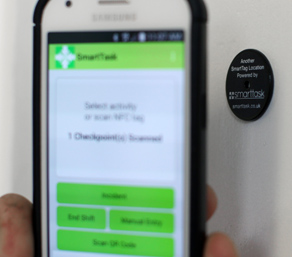The health and safety consequences of missed or inadequate lock-up checks in highly-populated public buildings and retail stores has been pointed out by Paul Ridden, Managing Director of Skillweb. He says that security companies have an opportunity to deliver a value-added service and added peace of mind to building managers by providing monitored inspections of facilities such as toilets, changing rooms and play areas. Ensuring that scheduled checks are taking place after closing time will minimise the risk of an ill or vulnerable person becoming trapped inside.
He says: “Anyone responsible for a building has strict health and safety and duty of care commitments to visitors, so security businesses can help meet these responsibilities. But how do managers of public buildings and retail stores ensure that the correct procedures are being followed, especially if they are responsible for large networks of properties? Only by capturing real-time and historical evidence is it possible to actually investigate an incident or test the robustness of the measures that are in place.”
Software that records actual checks as they are completed lets security companies offer monitored lock-up checks alongside customer requirements, the firm says. The system can monitor in real-time that guards have visited all at risk areas following closing time and trigger an alert if checks have not been completed to plan. Performance management information can also then be collated to allow regular reviews of pre-lock-up checks to confirm everything is working to plan.
The latest mobile workforce management apps, such as SmartTask, allow NFC tags to be placed at key points (such as toilet cubicles), which are then scanned by the security guard using an enabled Android smartphone. A building manager can be sure that planned checks are taking place and management data is being gathered electronically. A web portal will then provide what’s needed for reviews of store compliance, identify any poor performing stores and put in place a plan of continued improvement.
Ridden adds: “Recent high-profile incidents that have been reported in the local and national press, highlight the real danger of members of the public becoming locked in a building after closing time and the dangers they subsequently face. Such a situation will not only cause considerable distress to those involved, but also increase the risk of injury or even loss of life, especially if someone has fallen ill and not been found. Security businesses can help building managers enhance duty of care, avoid financial penalties for breach of health and safety laws, and protect corporate reputation.”










